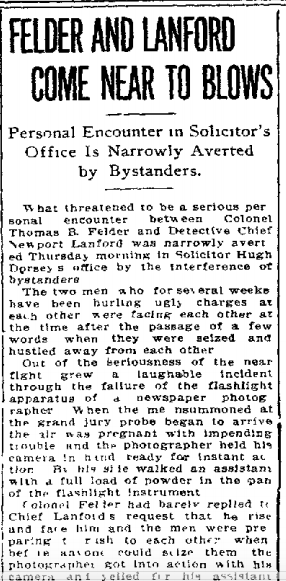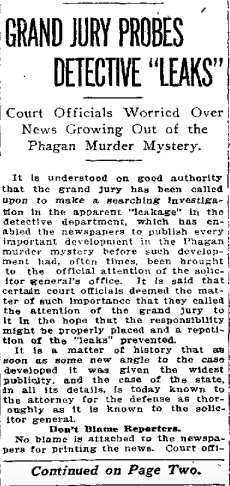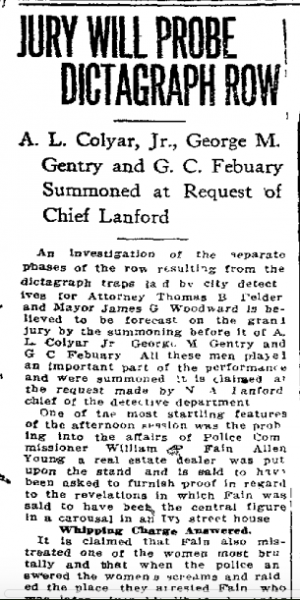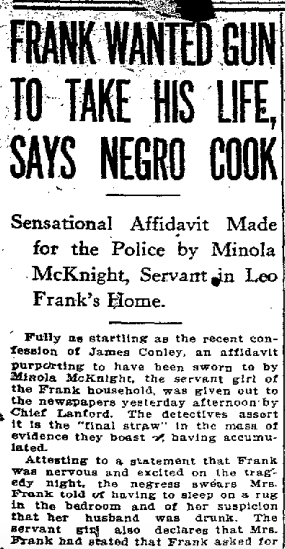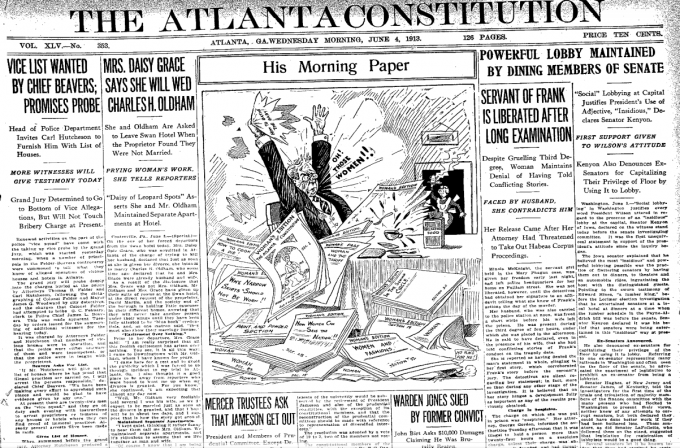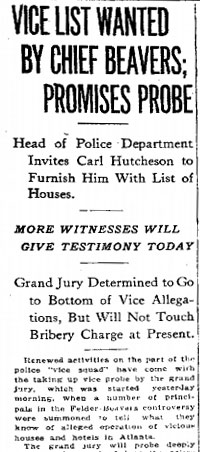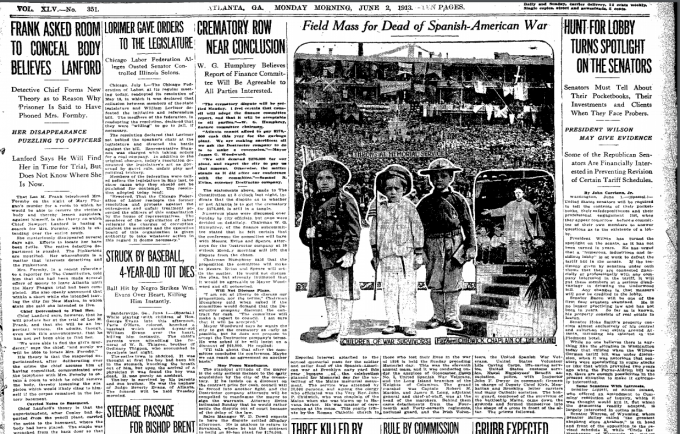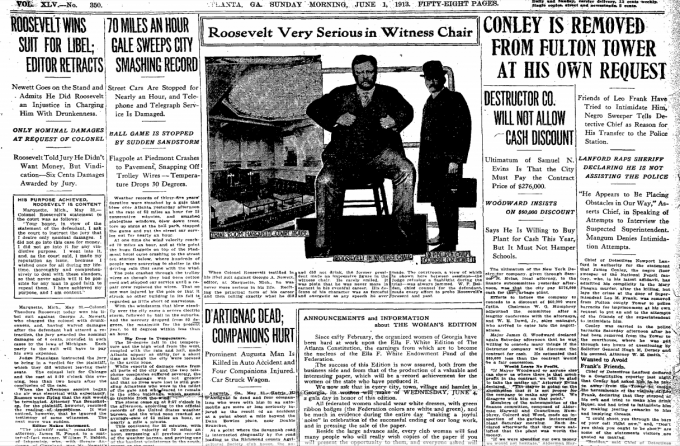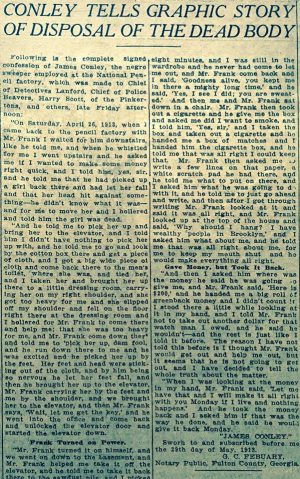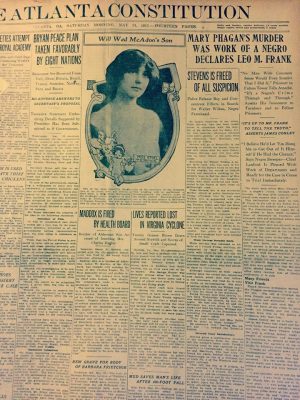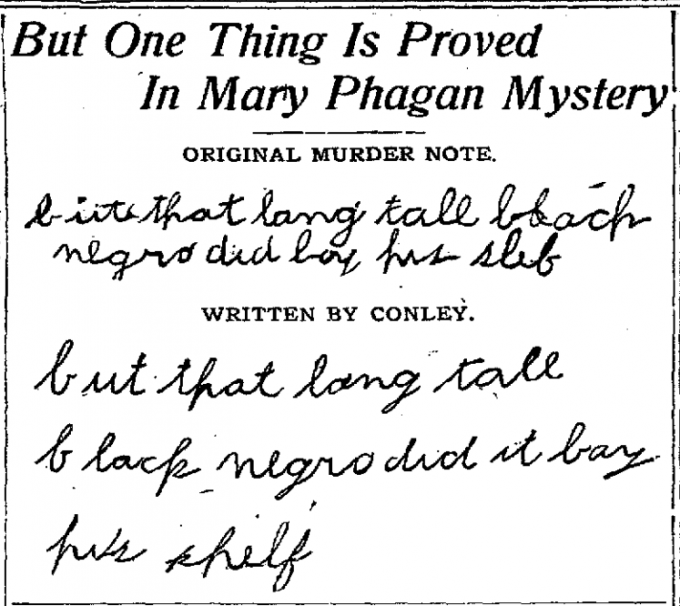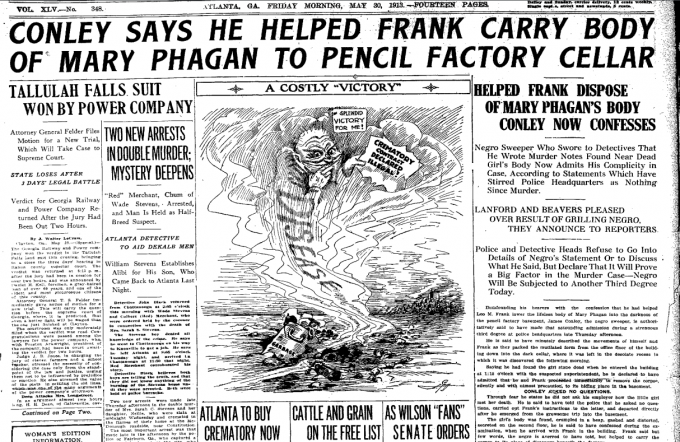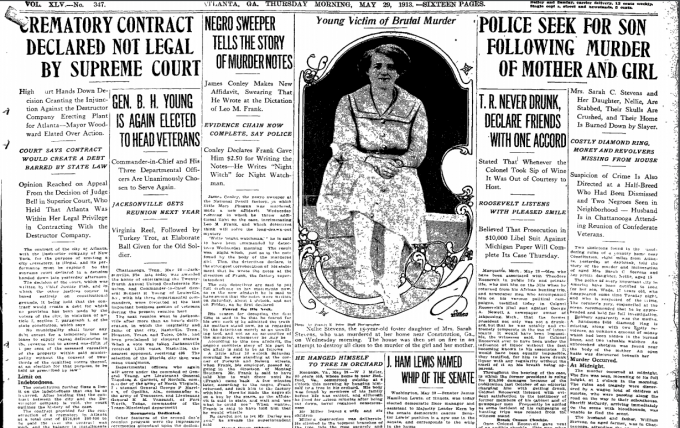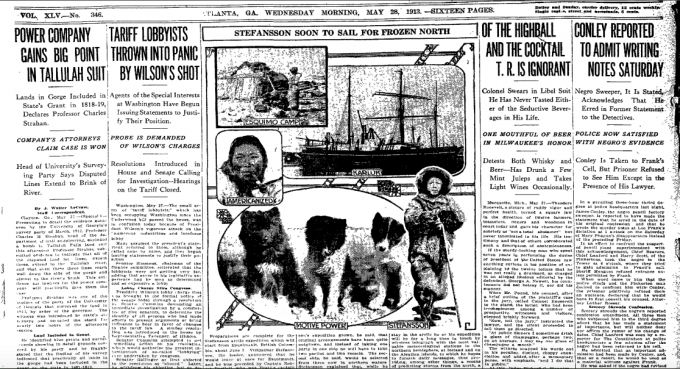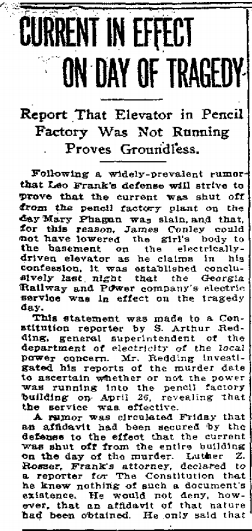 Another in our series of new transcriptions of contemporary articles on the Leo Frank case.
Another in our series of new transcriptions of contemporary articles on the Leo Frank case.
Atlanta Constitution
Saturday, June 7th, 1913
Report That Elevator in Pencil Factory Was Not Running Proves Groundless.
Following a widely-prevalent rumor that Leo Frank’s defense will strive to prove that the current was shut off from the pencil factory plant on the day Mary Phagan was slain, and that, for this reason, James Conley could not have lowered the girl’s body to the basement on the electrically-driven elevator as he claims in his confession, it was established conclusively last night that the Georgia Railway and Power company’s electric service was in effect on the tragedy day.
This statement was made to a Constitution reporter by S. Arthur Redding, general superintendent of the department of electricity of the local power concern. Mr. Redding investigated his reports of the murder date to ascertain whether or not the power was running into the pencil factory building on April 26, revealing that the service was effective.
A rumor was circulated Friday that an affidavit had been secured by the defense to the effect that the current was shut off from the entire building on the day of the murder. Luther Z. Rosser, Frank’s attorney, declared to a reporter for The Constitution that he knew nothing of such a document’s existence. He would not deny, however, that an affidavit of that nature had been obtained. He only said that word of its existence was “news to him.” Continue Reading →


